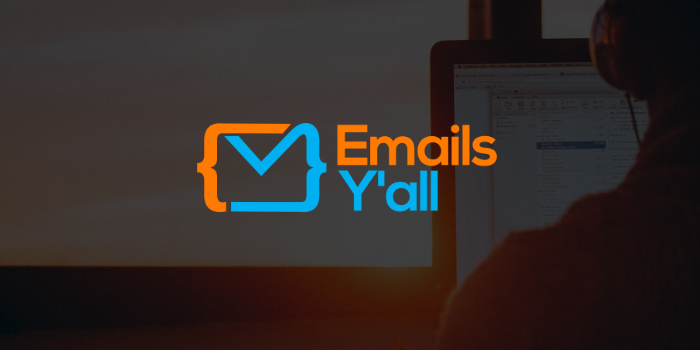
Email marketing has always been my bread and butter, but when I built SendView I knew I needed to dig a little deeper into the industry. So I followed a handful of people, one of whom was an email developer named Anne Tomlin. Over the following months a saw someone who truly loved what they did, did it incredibly well, and hinted at having a unique story to boot. With the SendView blog officially underway, I finally had my excuse to get in touch with Anne and learn more.
--
Gregg: Anne, let's start off with the basics. Who are you, where are you from, and, of course, how long have you been coding emails for?
Anne: I’m Anne Tomlin, a freelance email developer. I live in Austin, Texas, with my husband, Dalton, and my cat, Caesar. I’ve been coding emails for 9 years, exclusively for 5 years. I founded my company, Emails Y’all, when I went freelance in late 2017.
Gregg: I saw a tweet of yours the other day that hinted at a unique path to where you're at. What's your "how I got into email" story?
Anne: My degree is in Classics. I wanted to be a Latin teacher, but when I graduated, there weren’t any Latin teacher jobs open in Austin, so I took a tech support job at Apple. My brother owned a web development company at the time and thought I’d be good at PHP because I'd studied so many languages, so he gave me a book. PHP didn’t really stick, but I did enjoy the front-end side of development. I got a job as a front-end developer, and one day I was asked to code an email.
Gregg: And the rest is history?
Anne: I loved it immediately. My next jobs were in email development and I freelanced on the side. Once I had so many freelance requests that I didn’t have time to do them in addition to a full-time job, I took the leap into self-employment. It’s one of the best decisions I’ve ever made.
Gregg: How’d that leap go? Any regrets or big challenges you didn't expect?
Anne: I have no regrets; however, there have been big challenges that are necessary for growth. Every self-employed person has to experience them personally. Other people will warn you, but you really have to go through it to learn those lessons. For example, the first challenge I had to learn was not to overbook yourself. No, you can’t code 10 unique emails in 2 days.
Gregg: Ah, so you are human ;) So many people get frustrated by the challenges and limitations, so what do you think it was about email that clicked with you?
Anne: I love those challenges and limitations -- it’s like a puzzle! Trying to figure out how to make something display correctly for all 4000+ possible renderings is difficult, but rewarding when you finally get it. Plus, it just makes more sense to me. In web code, everything just floats around willy-nilly, while email is a series of boxes within boxes.
Gregg: Talk a little bit about your clients. Is there a niche or type of business that you've found matches well with your skills or network or interests?
Anne: Most of my clients are either agencies that have overflow work or established companies like Fracture and Ellevest. Email development is such a niche in itself that most clients are happy to find someone like me who specializes in it. Development inherently includes the ability to locate and fix errors, and to know which hacks are necessary to make an email render correctly. I’ve also been asked to audit existing emails with recommendations on how to improve the code. So, no matter what my client needs in relation to email development, I can do and will enjoy doing it.
Gregg: I've noticed a few times where, faced with one of those challenges, you've helped another email dev or another email dev has helped you, Talk a bit about that willingness to help each other and the community that exists in email?
Anne: The #emailgeek community is very close knit, and the email developer one even closer! I started coding emails at a time when there was little to no documentation, so you had to reach out to other developers via Twitter because that’s where everyone hung out. The community has grown since then in number of people, organizations, and platforms, but the spirit of “We’re all in this together — if we don’t help each other, who will?” is still intact. The email development world changes often and usually without warning, so I think we all feel a sense of obligation to share findings and as soon as possible. Everyone feels comfortable asking and answering questions for each other because we know at some time in the future we’ll be on the other side.
Gregg: Finally, give us some thoughts on where email is going. People are calling it the next big thing, some critics are still around, what do you see as the future of email?
Anne: I think people are realizing what marketing circumstances work best for email. When social media and SMS appeared on the scene, people were quick to discount email in favor of them. Now, we have more information on what communication channel works best for certain offers, audiences, etc. I expect this “rediscovery” of email to continue. The history of email is its evolution — it will never die, but it will change, and we’re seeing more and more of that lately. I look forward to every leap of progress that comes to email development, as it only means that I get to do even more cool stuff.


 Gregg Blanchard February 20, 2019
Gregg Blanchard February 20, 2019